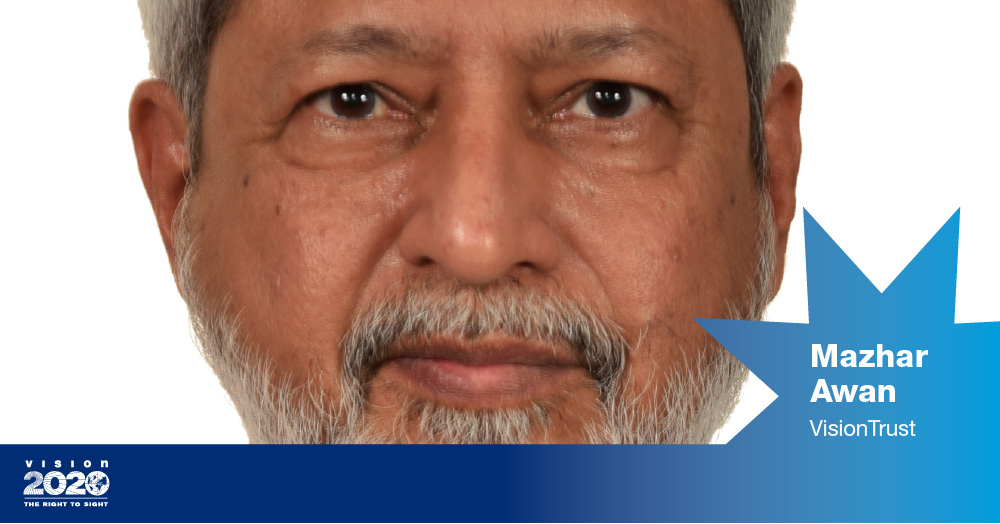Join a powerful, unprecedented alliance for better eye health for all.
Join IAPB-
Choose an alternate language here

Contributions of Dr. Mazhar Awan in fight against visual impairment and blindness in Pakistan.
Vision: He has been the engine of creating and delivering high quality eyecare available and accessible to all.
Drive: Dr. Mazhar Awan aims to rid the world of avoidable blindness and visual impairment in line with IAPB/ WHO Vision 2020 Right-to-Sight Initiative and Global Action Plan (GAP) Integrated with People Centred Eye Care (IPCEC).
Commitment: His physical impediment, by being on wheelchair since last 10 years or so following an episode of Myelitis is past, didn’t hold him back from relentless pursuit of his vision. In his own words “I have achieved more during this phase of disability than during able years.”
Quality of work:
He worked hard to create, Khairun’nisa Eye Hospital and then got it certified for ISO 9001:2015 QMS . This was his way of ensuring the creation and delivery of the quality service. He strongly feels it’s the right of all, regardless of paying power.
Milestones Achieved:
Pilot Project Report:
Disease control: As of date, under his supervision, seen more than 73,000 patients, performed about 16,000 Cataract Surgeries, and counting. Countless outpatient diagnostic & therapeutic procedures, medicines, optical aids, major and minor surgical procedures were provided. About 70 % of the patients were treated Free Of Cost, while the remaining were charged minimum possible amount on not-for-profit basis.
Institution-building: HRD is THE only way forwards if we want to achieve any meaningful results in curtailing the prevalence of Visual Impairment and blindness anywhere. Dr. Mazhar Awan, with his team is developing a one year internship programme, aimed at capacity building of our optometry graduates. This is being launched under the umbrella of Khairun’nisa Institute of Visual Sciences.
He firmly believes that targets of minimising, let alone eliminating Visual Impairment is possible through provision of robust primary care infra-structure, accessible in the community.
We hope and stand behind him that he would be able to advocate public and private financial institutions, to fund the establishment of primary eye care centres for qualified and trained optometrist in rural and suburban communities.